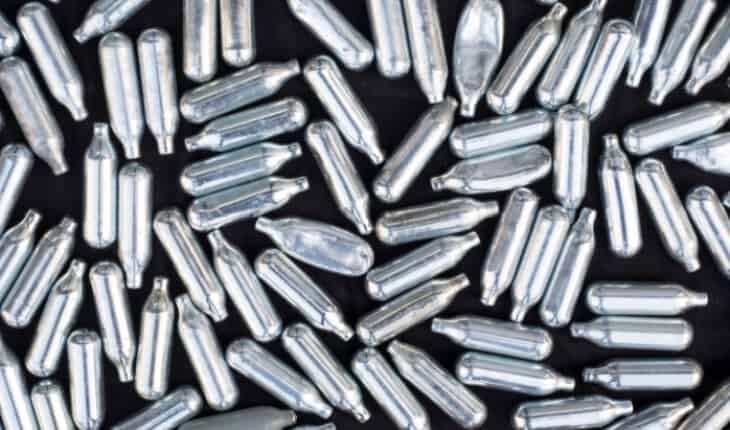Priory consultant: “The devastating consequences of ‘laughing gas’ on the patients I see”
• Priory consultant warns of life-threatening consequences
• Says parents need to be alerted to dangers
• Treats over-18s but says he is aware of children as young as 14 using it
A senior Priory addictions consultant has spoken out about the devastating and potentially life-threatening effects of ‘laughing gas’ amid reports that the Government is preparing to ban its sale or possession.
Nitrous oxide – or ‘laughing gas’ as it is more commonly known – is frequently inhaled from bottles, some of which are up to 70 times stronger than the small shiny pressurised aluminium canisters that were a common sight on the streets and in parks.
Inhaling directly from bottles is much more dangerous. After cannabis and ketamine, laughing gas is now one of the most commonly misused substances among 16 to 24-year-olds in England.
A&E departments have seen admissions of users overdosing on nitrous oxide increase in the last year, which coincides with bottles becoming more easily available. The bottles are legal and used in the catering industry for instant cream and cost between £25 and £40.
Priory consultant psychiatrist Dr Niall Campbell says he is seeing patients at the Priory Hospital in Roehampton who have become addicted to the gas and in danger of causing significant – sometimes fatal – damage to their mental and physical health.
“There are a number of significant effects and if you take too much you can risk falling unconscious and suffocating from lack of oxygen,” he said. “The bottles are now a common sight on our roadsides. You often see young adults with them in parks or on the street. Some use them at home. They are also a danger to road users, with cyclists seeing dozens of them in the road and gutter. There are a lot of cyclist forums about crashes caused by them when people are cycling at night for example.”
He added: “The dangers of inhaling nitrous oxide are significant and parents need to know it can kill. It can cause heart problems, suffocation and nerve damage. It slows down your brain and can give you hallucinations, severe headaches and feelings of paranoia. If you take too much, it can also lead to paralysis.”
Dr Campbell said parents needed to be alert to their children potentially taking it, and warn them of the dangers – and where to seek advice. “It is incredibly worrying to see the scale of this problem and the heart-breaking effects it has on not just patients but their families and loved ones.”
The Government drugs advice website Talk to Frank urges those who are using it to seek help.
The website said: “It is very dangerous to inhale nitrous oxide directly from the canister, and doing it in an enclosed space is also very dangerous. People have died. Dizziness, which might make you act carelessly or dangerously is a side effect. Prolonged use of laughing gas can cause long-term health problems. Heavy regular use of nitrous oxide can lead to a deficiency of vitamin B12 and to a form of anaemia. Severe B12 deficiency can lead to serious nerve damage, causing tingling and numbness in the fingers and toes. This can be very painful and make walking difficult.”
The Home Office has asked for the findings of a report into the harm caused by laughing gas to be delivered sooner than planned.
It says in turn it will consider this review before making a decision.
Current legislation bans the knowing or reckless supply of nitrous oxide for inhalation – but there have been calls for a ban on all direct consumer sales as part of a tightening up of the law.
The Times – which first reported the story – said that under the proposals, exemptions would be allowed for those with “legitimate reasons”, such as chefs using it for whipped cream or for pain relief in hospitals. It reported that punishment for being caught with or selling nitrous oxide is likely to be similar to sanctions for Class C drugs – those in possession face up to two years in prison or an unlimited fine and a maximum 14-year-sentence for supplying or producing the substance.
In the year ending June 2022, 3.9% of 16-24 year olds reported using nitrous oxide, equivalent to about 230,000 people, according to the Crime Survey for England and Wales.
- Half way to Health: Dry January Motivation - 21st January 2025
- Priory’s Reaction to Government’s Social Care Workforce Update - 15th January 2024
- Responsible alcohol consumption during ‘Office Party Season’ - 10th December 2023







